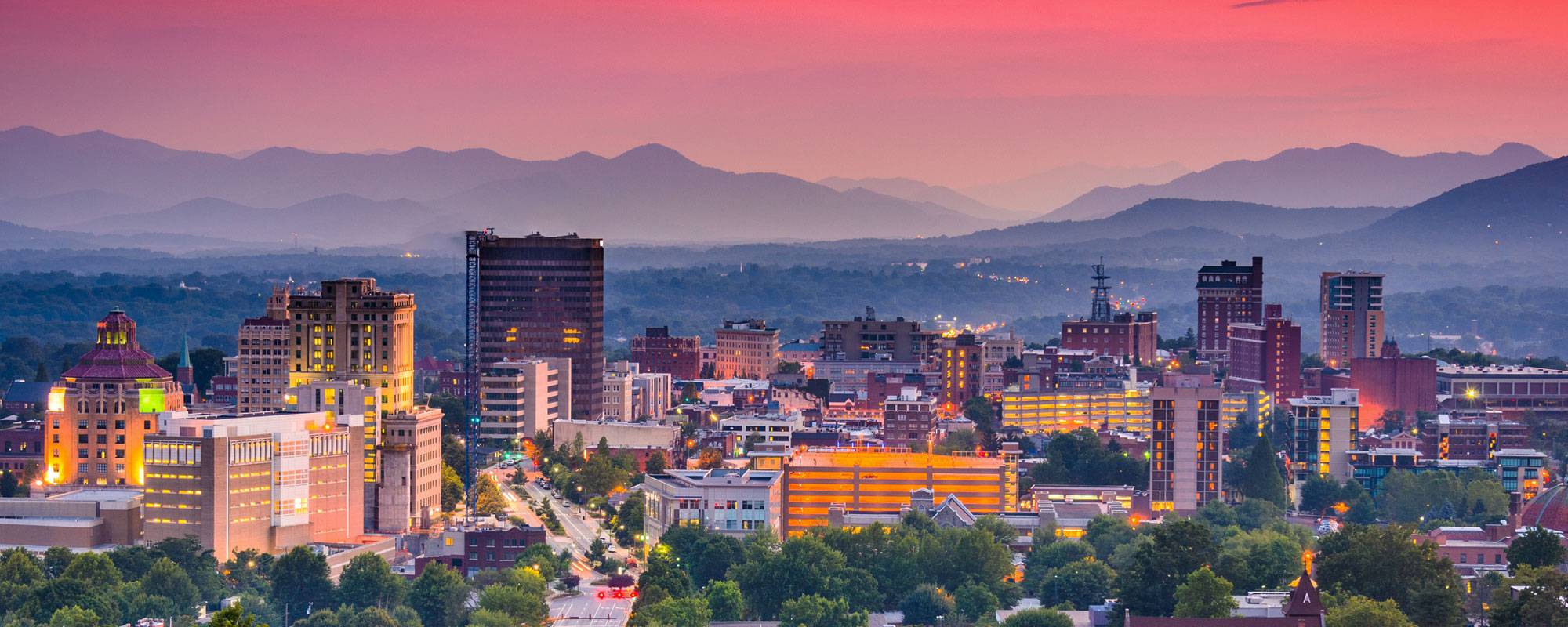Asheville, NC, real estate is a hot topic these days, and for good reason. Nestled in the Blue Ridge Mountains, Asheville is a vibrant city with a thriving arts and culture scene, abundant outdoor recreation, and a unique blend of historic charm and modern amenities.
Exploring Asheville NC Real Estate: A Comprehensive Guide
People are flocking to Asheville for its quality of life, but what about the real estate market? This exploration will provide an in-depth look at real estate in Asheville, covering market trends, neighborhoods, cost of living, and key factors to consider when buying or selling.
Why Choose Asheville, NC, For Real Estate?
Beyond the allure of the mountains and the bustling downtown, what makes Asheville a desirable place to live? Let’s examine some of the city’s most appealing aspects.
1. Asheville Is A Cultural Hub
Asheville has earned a reputation as a cultural hub, brimming with art galleries, music venues, and theaters. With a lively downtown area featuring over 30 art galleries, there’s always something to inspire and captivate.
Events like Shindig on the Green showcase Asheville’s dedication to its Appalachian heritage and love for folk music and dance. The city’s vibrant energy radiates from its locally-owned businesses and the unique shops lining its historic streets.
2. Asheville Has Outdoor Adventures
Located in the French Broad River Valley, Asheville serves as a gateway to boundless outdoor recreation opportunities. Hiking trails abound, with varying difficulty levels catering to seasoned adventurers and leisurely walkers.
The Blue Ridge Parkway, a scenic byway traversing the mountain ridges, offers breathtaking views. The French Broad River meanders through Asheville, offering opportunities for paddling, fishing, and tubing.
3. Asheville Is Known For Its Eclectic Culinary Scene
Asheville’s culinary scene mirrors its eclectic spirit, featuring award-winning restaurants and cozy cafes. Local chefs have crafted a vibrant food culture drawing from farm-fresh ingredients. Craft breweries, a local staple, offer refreshing brews, creating social hubs where residents and visitors gather to sample Asheville’s diverse beer scene.
This vibrant culinary landscape adds to Asheville’s allure, making it a hotspot for foodies and beer enthusiasts.
Asheville NC Real Estate: Market Trends & Insights
Asheville, NC, real estate has experienced dynamic changes. Is it a buyer’s or seller’s market?
Recent Market Trends In WNC
In recent years, Asheville has seen consistent real estate growth. The influx of people drawn to the city’s unique offerings has led to increased demand, driving property values up. Asheville’s median home prices are generally higher than the national average.
Though market conditions can change, the allure of Asheville, NC, real estate makes it a potentially strong investment for those seeking a vibrant and culturally rich place to live. Understanding the specific market conditions at the time of buying or selling is essential.
Understanding Market Conditions
It’s wise to consult with local real estate experts, like those at Century 21 Connected, for the most up-to-date information on the Asheville market. Their agents are knowledgeable about the area and provide valuable guidance to help you make informed decisions.
Exploring Asheville Neighborhoods
Each neighborhood in Asheville offers a distinct personality and price point, from historic districts to hip, modern areas. Let’s explore a few of them.
1. Downtown Asheville: Historic Charm Meets Modern Life
Downtown Asheville is known for its architectural splendor. Buildings reflect Art Deco, Beaux Arts, and Neoclassical influences, creating a visually appealing atmosphere.
Living downtown places you close to restaurants, shops, art galleries, and cultural venues. However, be prepared for limited parking, higher property values, and the constant buzz of city life. This vibrant hub offers a dynamic living experience.
2. West Asheville: Hip And Funky With Local Flavor
Across the French Broad River lies West Asheville, a community known for its artsy vibe and funky shops. This area is popular with a diverse mix of artists, musicians, and young professionals.
West Asheville residents seek a close-knit community and affordable Asheville, NC, real estate options. With bustling Haywood Road at its heart, West Asheville has become a haven for locally-owned businesses and vibrant nightlife, offering a distinctly unique Asheville experience.
3. North Asheville: Tranquil Residential Haven With Green Spaces
North Asheville boasts large, historic homes with well-established landscaping and mature trees. The neighborhood offers a sense of tranquility and spaciousness.
Properties in North Asheville often have higher price tags due to their location and generous lot sizes. It’s known for its proximity to the Botanical Gardens at Asheville, offering residents a natural sanctuary just minutes away. This creates a peaceful escape from the city’s hustle and bustle.
4. South Asheville: Blend Of City Convenience And Mountain Serenity
South Asheville provides a balanced blend of city convenience and mountain serenity. With easy access to shopping centers and restaurants, it retains a more relaxed atmosphere than downtown.
South Asheville is an attractive option for those seeking urban amenities and suburban quiet. You can often find a range of housing options, catering to various budgets and preferences.
Factors Influencing Asheville NC Real Estate Prices
Several factors contribute to property value, ultimately impacting real estate prices in Asheville, NC. Understanding these dynamics is essential for both buyers and sellers.
1. Supply And Demand Dynamics
As with any market, Asheville is subject to supply and demand forces. Continued demand for housing often leads to increasing property values, especially when inventory is limited.
When supply outweighs demand, prices tend to moderate. Real estate cycles are complex and influenced by various factors, making it crucial to stay informed about the current market dynamics.
2. Location And Neighborhood Desirability
Just as downtown properties command premium prices in major cities, Asheville’s neighborhood desirability impacts value. Location, access to amenities, views, school districts, and neighborhood safety all influence property values.
As demand rises for desirable locations, it fuels competition and drives up prices. Understanding the nuances of each neighborhood and their respective desirability factors is crucial for making informed decisions in the Asheville real estate market.
3. Property Condition, Size, And Amenities
The condition, size, and amenities of a property significantly influence its price, just as in other real estate markets. A newly renovated home with modern amenities will typically fetch a higher price than one requiring extensive updates.
It’s basic supply and demand – buyers are willing to pay a premium for move-in-ready homes with desirable features. Home sizes and land considerations (lot size and acreage) are also key components that influence real estate prices in Asheville.
4. Economic Conditions And Interest Rates
Local and national economic factors, along with fluctuating interest rates, have significant effects on the real estate market. A booming economy and lower interest rates often result in increased buyer activity and rising prices.
Conversely, an economic downturn or rising interest rates can lead to a slowdown in the market. It’s essential to stay informed about broader economic trends and their potential impact on the Asheville real estate landscape.
What Is The Cost Of Living In Asheville, NC?
Knowing the costs beyond your mortgage payment helps determine your budget and assess the financial feasibility of living in Asheville. Let’s break down the primary expenses.
1. Housing
Housing costs, whether through mortgage payments or rental costs, represent a significant portion of the overall cost of living in Asheville. As mentioned before, housing costs are higher than the national average, reflecting the city’s desirability.
Several factors, including the rise of short-term rentals, limited housing supply, and steady demand, contribute to the higher price tags associated with housing in Asheville. It’s essential to factor in these costs when evaluating affordability.
2. Transportation
While Asheville has a decent public transit system with a network of buses, many people choose to own a vehicle for their daily commute, especially considering the city’s spread-out nature. The cost of car ownership, including gas, insurance, and maintenance, can add up.
That said, Asheville has been steadily working to enhance its pedestrian and cycling infrastructure with dedicated bike lanes and improved sidewalks. There’s a concerted effort to make the city more bike-friendly, offering alternative transportation options.
3. Utilities
Utility costs (electricity, gas, water) in Asheville are generally on par with or even lower than the national average. The mild climate contributes to energy savings, particularly during the shoulder seasons.
4. Healthcare
Healthcare costs are another essential factor to consider. While there’s variation between individuals and their chosen health insurance coverage, the costs in Asheville align closely with national averages. This information is useful for comparing expenses against other potential locations.
5. Groceries
Asheville’s grocery costs are relatively reasonable, typically on par with or even lower than the national average. Residents benefit from access to a variety of grocery stores and supermarkets.
Additionally, the presence of local farmers’ markets and community-supported agriculture programs (CSAs) can help reduce costs for fresh produce, supporting local farmers and promoting sustainable practices.
6. Taxes
While state taxes in North Carolina tend to be lower compared to some other states, it’s essential to understand the specifics of the state’s tax system. North Carolina offers a flat income tax. The current tax rate is around 5%.
North Carolina uses a three-tier tax system based on a resident’s annual net income. There’s variation between specific Asheville, NC real estate tax rates depending on the property and neighborhood.
7. Lifestyle & Recreation
The costs related to Asheville’s lively art and culture scene and its vast outdoor recreation opportunities are important aspects to account for when determining the total cost of living. Asheville offers an abundance of entertainment options, from live music venues to art festivals and craft breweries.
The abundance of entertainment and cultural experiences can influence spending habits. It’s essential to factor in these costs based on your lifestyle preferences and how actively you plan to engage with Asheville’s vibrant social scene.
Cost of Living Example for Asheville, North Carolina
The following table provides a general overview of estimated monthly expenses in Asheville. Remember to confirm specifics with local resources because these are guidelines, and individual situations may vary. This table uses an average household size of two adults and includes typical monthly expenses for different categories.
| Category | Monthly Cost |
|---|---|
| Mortgage or Rent | $1,500-$3,000+ |
| Utilities | $200-$300 |
| Groceries | $400-$600 |
| Transportation | $300-$500 |
| Healthcare | $500-$1,000+ |
| Entertainment & Recreation | $200-$500+ |
| Other Expenses (personal care, subscriptions, etc.) | $300-$500+ |
| Total Estimated Monthly Cost (excluding taxes) | $3,400 – $6,300+ |
Advice for Asheville, NC Real Estate Seekers
Navigating the Asheville, NC, real estate market requires careful consideration and expert guidance. Here are some essential tips for those looking to buy or sell property in Asheville:
- Connect with Local Experts: It is crucial to connect with a knowledgeable local REALTOR® who understands the nuances of the Asheville market. CENTURY 21 Connected offers expertise to guide both homebuyers and sellers through the process.
- Understand Your Needs and Budget: Clearly define your needs, priorities, and budget before you start your property search. Determine your non-negotiables, such as desired location, property size, and amenities. Having a clear vision will help streamline your search.
- Research School Districts: If you have children or plan to in the future, thoroughly research school districts in Asheville. The quality of schools can significantly impact property values and your family’s overall well-being. While online ratings can be helpful, visiting schools and speaking with local parents can provide more nuanced insights.
- Get Pre-Approved for a Mortgage: Before you start making offers, getting pre-approved for a mortgage from a reputable lender is advisable. This step demonstrates your seriousness as a buyer and provides a clear understanding of your purchasing power.
- Be Prepared for Competition: The Asheville real estate market can be competitive, especially for desirable properties. Be prepared to act decisively when you find a property that meets your needs and aligns with your budget. Working with an experienced real estate agent can give you an advantage in navigating competitive bidding situations.
FAQs About Asheville, NC, Real Estate
1. Are Home Prices Dropping In Asheville, NC?
The Asheville real estate market shows resilience. While price increases may not be as drastic as seen in prior years, predictions still point to growth, with appreciation possibly moderating. Keep an eye on local trends and consult real estate professionals for the most recent developments in pricing dynamics.
2. Is It Expensive To Live In Asheville, NC?
Yes, living in Asheville generally costs more than in many other parts of the U.S. As outlined in the Cost of Living Example, the average home price in Asheville is considerably higher than the national average. Factor in the cost of living beyond your housing needs and consider groceries, entertainment, and everyday expenses to create a realistic budget.
3. What Salary Do You Need To Live In Asheville, NC?
The required salary to live comfortably in Asheville depends on lifestyle choices and whether you plan to rent or buy. A common rule of thumb in financial planning is to allot about 30% of your gross monthly income to housing costs.
A decent salary would allow you to manage essential expenses while leaving room for recreation and personal needs. When considering salary requirements for living comfortably in Asheville, you need to assess your personal goals and desired lifestyle choices.
4. Why Is Asheville So Expensive?
The higher cost of living in Asheville is due to a combination of factors. This is partly fueled by a consistent increase in popularity with those looking to relocate, often seeking the benefits of mountain living combined with urban amenities.
Asheville’s reputation for arts, culture, and quality of life has resulted in an ongoing high demand for a relatively limited housing supply. This imbalance contributes to the city’s higher cost of living.
Let CENTURY 21 Connected Help You With Asheville, NC, Real Estate
Are you searching for expert guidance in navigating the Asheville, NC, real estate market? Look no further than Century 21 Connected. Our team of knowledgeable agents is well-versed in the nuances of the Asheville area and is dedicated to providing you with the most up-to-date information and valuable guidance you need to make informed decisions.
Whether you are buying or selling, our expertise will help you navigate the dynamic real estate landscape of Asheville with confidence. Contact us today and let us help you find or sell your dream property in Asheville, NC.


 Facebook
Facebook
 X
X
 Pinterest
Pinterest
 Copy Link
Copy Link



